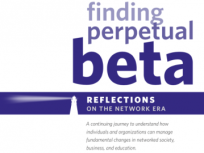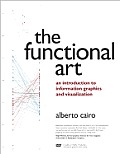There you are, navigator of your solo vessel, heading for discovery, terra incognita, riding a sea of digital waves. In my last post I argued that we all should head out in search of adventure, discovery and limitless exploration. While that may sound inviting, it is hard to know how to navigate through unknown territory, to keep going even when the next port is unknown. Indeed, it is unknowable!
In an earlier age, travelers learned to navigate by understanding the natural markers around them. At its most basic, the sun and moon provide cardinal direction. Gazing at the night sky compelled people across the globe to draw patterns, and from those patterns, to note how they could guide movement: The northern star, the southern cross, the big dipper, the tropics and the planetary ecliptic. Later, with the advent of the sexton and (eventually) accurate timekeeping, global circumnavigation became so commonplace that the age of exploration drew to a close. Arise the age of commerce, of global trade.
The Learning Age, a new kind of age of discovery, requires a similar sort of basic navigational tools in order to keep going and to judge the value of what you find: To sort out gold and spices from flotsam and jetsam. Instead of gazing skyward, we need to work from within outward, and back again, in order to make sense of our known world.
And that requires a system, a method by which to navigate and then to make sense of discoveries.
- Know your cardinal directions. While there is no limit to what you’ll discover, you need to always have a general sense of your course. Rather the compass direction, the cardinal orientation here is purpose. What assets or artifacts do you feel lacking? What areas could help you intentionally improve your profession or craft? What people or knowledge would be of most help to you (and you to them!)? For every next shiny object you come across, measure it against your purpose. That will tell you if you’re headed in the right direction.
- Be in practice; navigation is your profession. By practice, I mean be in process. Once you have a general sense of your cardinals — where you want to go, and why – the key is to know how to move in that direction with consistency and deliberate action. The process through which you encounter potential treasure, measure its worth, and then keep or discard it is the way to move through the digital world. The more you practice, the more intuitive and natural it becomes.
- Patronize the trading posts. Our networks and the Internet as whole are essentially a marketplace of ideas and connections. Share freely: blog, tweet, post, react, write, question, discuss. Sometimes others will pick up what you share, other times not. Have no expectations for reciprocation or immediate return. It’s a process, right? Also understand that there is no way to attend to everything that you encounter – there’s too much information and far too little time. The important thing is picking things up to see if you

The market is open, 24/7. Make your own discoveries, measure their worth, assemble your inventory as you like.
can use it, and not to sweat about the vast majority of wares you’ll never see. You build what you can out of what you find valuable; don’t fret about the rest.
- Attend to your cargo. Is what you carry in your SS Learning worth the effort of transport? Knowledge, adaptations, applications and members of your networks will come and go. Take the time for useful, purposeful pruning. In all likelihood you’ll carry a few ideas, partnerships, and methods to the ends of the digital seas and back. However, the majority of what you put into your hold will at some point become outdated, no longer useful or even dead weight holding you back from the learning velocity you need to maintain. Only you can determine value, but be prepared to reassess and let go on a regular basis.
- Move on. If you find a great port, a trove of useful knowledge and ideas, consider yourself lucky. Glean what you can, and return to it as you need to, but keep moving on. What’s precious today may not be tomorrow, depending on changing conditions in what you find useful. The Learning Age is about ongoing learning, adaptation, exposure and network maintenance. Don’t let a beautiful moment in port lead you to settling for a stale life of safe harbor! Gold today may be straw tomorrow.
Choose the life of exploration and set your course, always on the lookout for what is yet to be discovered as you push into the horizon.












